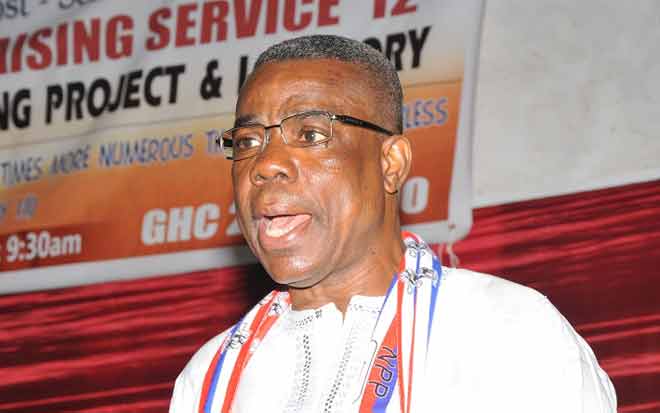
NPP’s Mac Manu joins IDU to observe German election
Former National Chairman and 2016 Campaign Manager of the New Patriotic Party (NPP), Mr Peter Mac Manu, is joining the Election Observer Mission team of the International Democratic Union (IDU) to observe Germany's 2017 general election to be held on September 24, 2017.
Advertisement
Mr Mac Manu is the Honorary Chairman of the Democratic Union of Africa (DUA), an affiliate of IDU.
A statement released by the Secretary-General of DUA, Mr Charles Owiredu, said Mr Mac Manu would observe the rallies and have a first-hand experience by touring some polling stations across some of the 299 voting districts in the country.
Biggest jobs in Europe
Angela Merkel is heading for four more years at the top in Germany. But when Germans vote on September 24, far more is at stake than one of the biggest jobs in Europe.
For the first time since World War Two, six parties are expected to enter the Bundestag, including a group of right-wing nationalists.
This is the first national vote since the Merkel government opened Germany's doors to an influx of migrants and refugees in 2015, letting in almost 900,000 people.
Big changes are taking place in German politics. It is fragmenting, and there is a real chance that the anti-immigration, anti-Islam Alternative for Germany (AfD), which is not yet represented in Parliament, could secure third place.
The German news website Focus complained that the topic dominated the one big TV-duel between Angela Merkel and her main rival - Martin Schulz of the Social Democratic Party of Germany (SDP).
Yet Angela Merkel's ratings are largely untouched by the migration debate. After initially opening the door to Syrian refugees, the government then took a tougher line, promising deportations after hundreds of mainly North African men had attacked women in Cologne as 2016 began.
German election
Chancellor Dr Merkel is seeking re-election for the fourth time, leading the Christian Democratic Union (CDU) and the CSU in a coalition, with Martin Schulz of the SDP as her main opponent.
Other parties include the Free Democratic Party (FDP) and the left’s Alternative for German (AfD), which is led by Sahra Wagenknecht and Dietmar Bartsch.
The elections are taking place in all the 299 voting districts across the country. The German’s electoral architecture is transparent and analog – voters are only allowed to vote with pen and paper and not with digital voting machines. All counting takes place by hand in the 70,000 or so voting locations and counting is open to the public.
Final results of the German elections are expected to be announced by midnight of Sunday, September 24, 2017. The party or the coalition bloc that wins the most seats in the Bundestag will have the mandate to form government.



